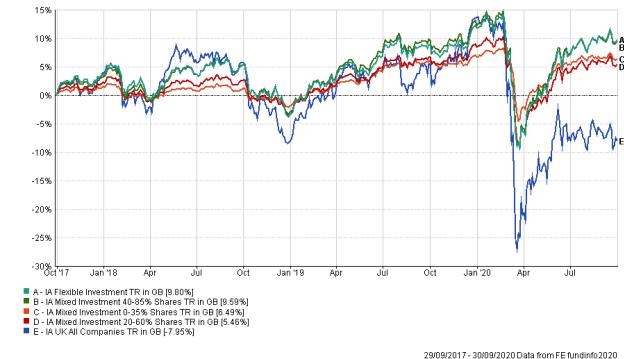
It all comes down to access, says Darius McDermott, who runs a range of multi-asset funds at Chelsea Financial Services.
He says: “For many private investors and smaller advice firms, getting time and access to a fund manager can be quite hard, one of the advantages of an outsourced investment proposition, is that, by pooling the assets of multiple clients, we can have greater contact with fund managers, and so understand their process better, which is very helpful for clients.”
Fee fears
Rob Morgan, pensions and investment analyst at Charles Stanley, says a major issue with multi-manager funds is the extra layer of costs, as the client pays both the multi-manager fund manager and the costs of investing in the underlying funds.
Costs are also a concern for Andrew Surrey, senior national development manager at Vanguard.
He says: “The puzzle multi-manager funds look to solve is one the industry has wrestled with for decades; investors’ entirely reasonable demands for smoother returns and more predictable outcomes.
"From the 1950s, with-profit bonds often fulfilled this role for UK investors. This practice declined due to mis-selling, high costs, and concerns over lack of transparency.
"Institutional Investors started blending fund managers from different fund houses back in the 1980s, with retail multi-manager funds taking off around the millennium.
"However, these 'fund of funds' type products in turn struggled with transparency and performance, impeded by the layered costs involved. Certainly, since the global financial crisis and the Retail Distribution Review, we have seen an acceleration of advisers buying lower-cost, less tactical multi-asset products."
Rob Burdett, who jointly runs a range of long-established multi-manager funds at BMO Global Asset Management said there may also be a benefit to the adviser and the client in terms of fees.
He says: “There are different routes an adviser can take, particularly once they have decided to outsource investment management.
"One of the advantages of a multi-manager fund is that they can negotiate on fees, buy institutional share classes and that means lower fees for the end client. This makes the cost of ownership much less expensive.”
He adds that multi-manager funds can allow a client to have exposure to more esoteric and boutique funds, which the adviser might not have the time to research such products, or where the minimum investment level may be too high for an individual advised client to be placed into such a fund, but if held via a multi-manager fund, then a relatively small amount of the clients assets can be held in an alternative fund.
Specialist talents
Mr Burdett says this capacity to do research in specialist areas is key to the role a multi-manager fund can play in a portfolio.
He says: “This extra research capacity is key. And that combined with the ability to buy institutional funds, is a major way multi-manager funds are differentiated.”









